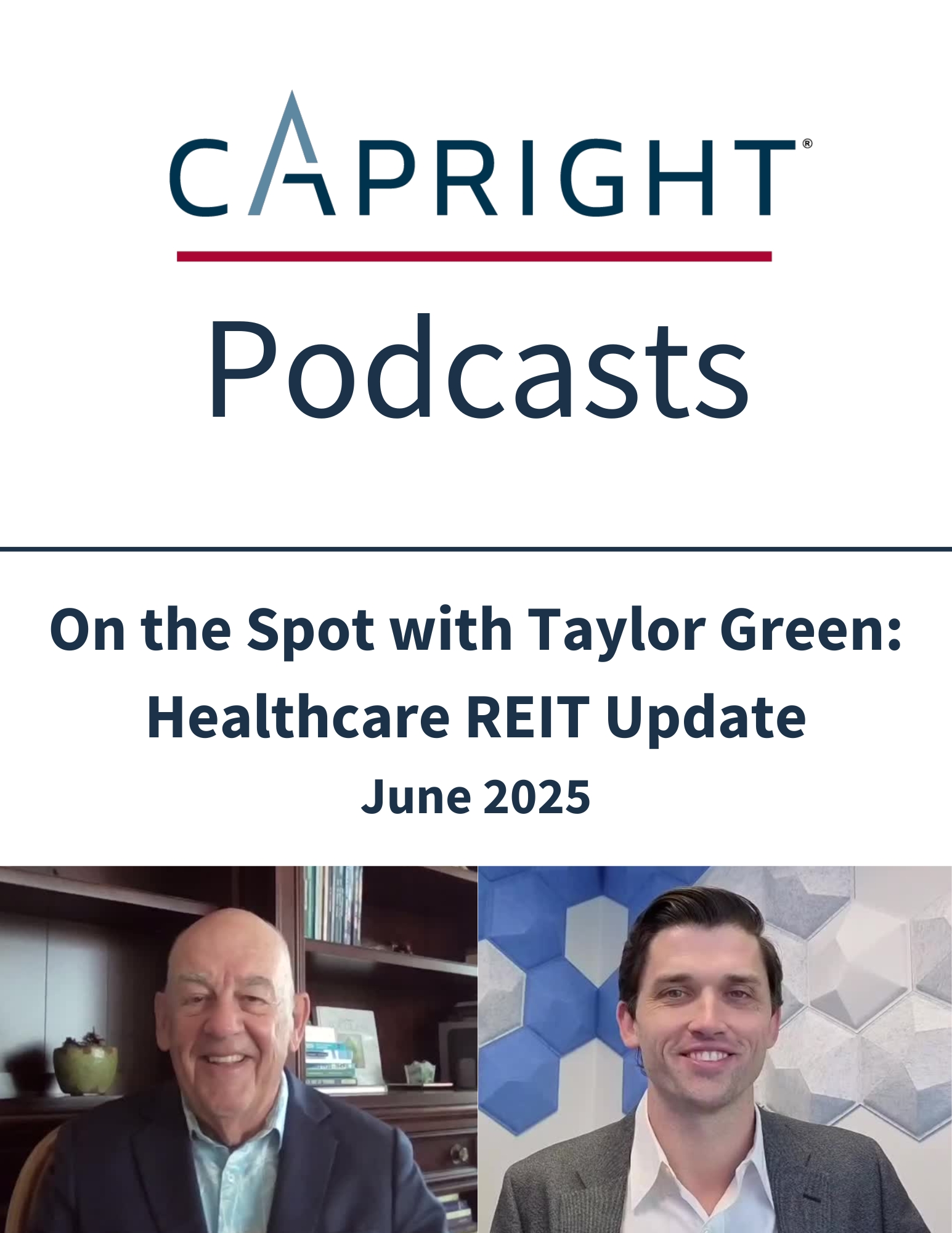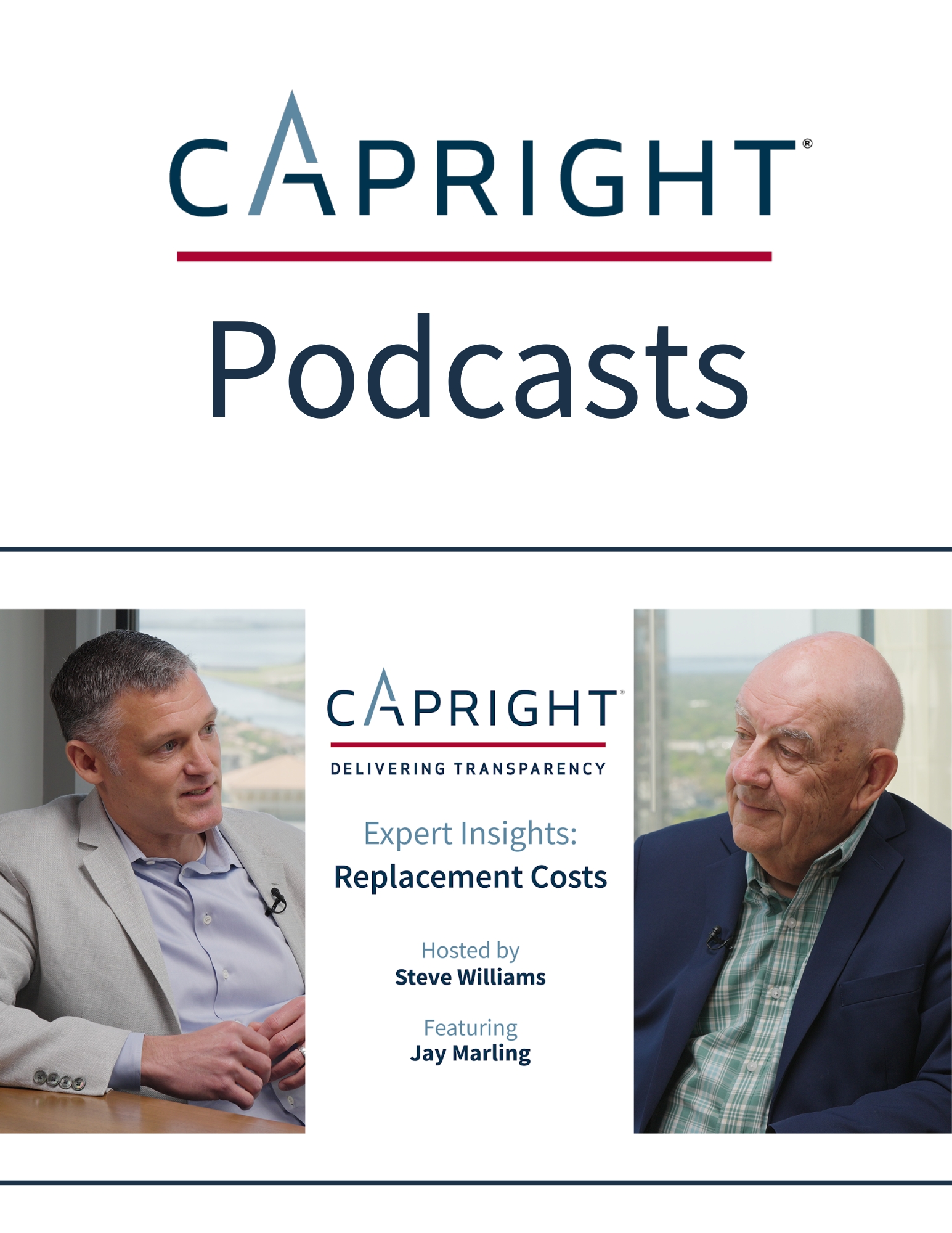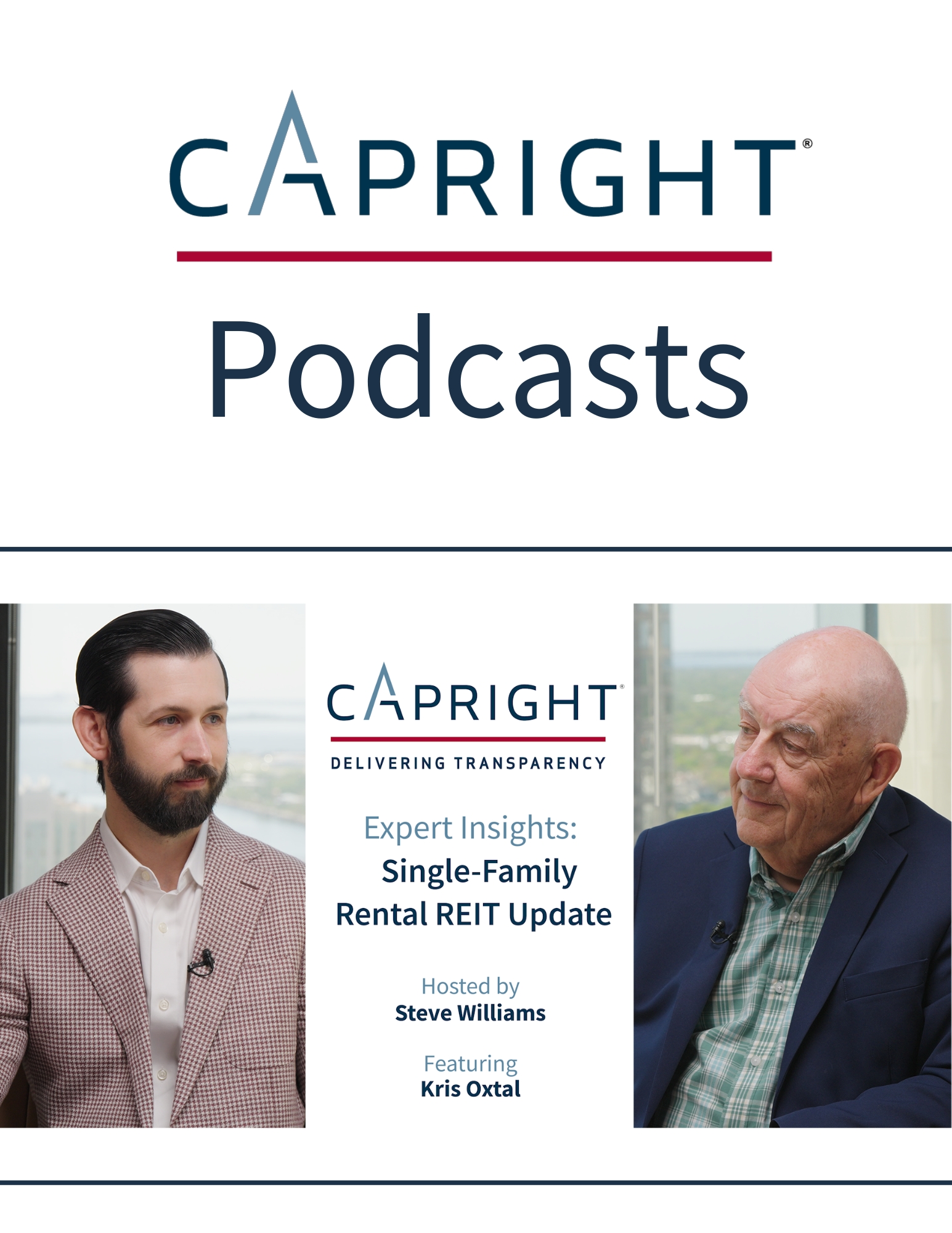Capright – Delivering Transparency
At Capright, our culture is the foundation of everything we do. We bring excellence, precision, integrity, and insight to every CRE valuation and advisory services ...read more

At Capright, our culture is the foundation of everything we do. We bring excellence, precision, integrity, and insight to every CRE valuation and advisory services ...read more

The Next Wave of Capital: How Generational Wealth Transfers Will Shape Future Investment in CRE In this exclusive interview, Steve Williams sits down with Jay ...read more

Taylor Green on Healthcare REITs In this episode, we explore the enduring strength of Healthcare REITs amidst evolving market dynamics. As the U.S. population continues ...read more

Triple-Net Retail REIT Update – June 2025 In a market defined by uncertainty, net-leased retail REITs continue to stand out as a model of resilience. ...read more

Replacement Cost: The New Focus for Multifamily CRE Investors In this episode, we delve into the shifting landscape of multifamily CRE investment, spotlighting the rising ...read more

Steven Lore recently attended the 2025 Data Center Investment Conference & Expo (DCIC) in Ashburn, VA. This premier industry event brought together a dynamic cross-section ...read more

Self-Storage REITs This conversation offers a comprehensive look at the current landscape of the self-storage REIT market. It explores key challenges, including slowing demand and ...read more

Kris Oxtal on Single-Family Rental REITs In this episode, Kris Oxtal and Steve Williams dive into the metrics that matter most for the SFR sector. ...read more

What’s Shaping CRE Right Now? Trends you need to know with Jim Costello & Steve Williams In this timely conversation, real estate experts Jim Costello ...read more

Capright Principals, Douglas Ticus, MAI, MRICS, and Kris Oxtal, MAI, had the opportunity to represent Capright at the Institute for Portfolio Alternatives (IPA) Summit in ...read more